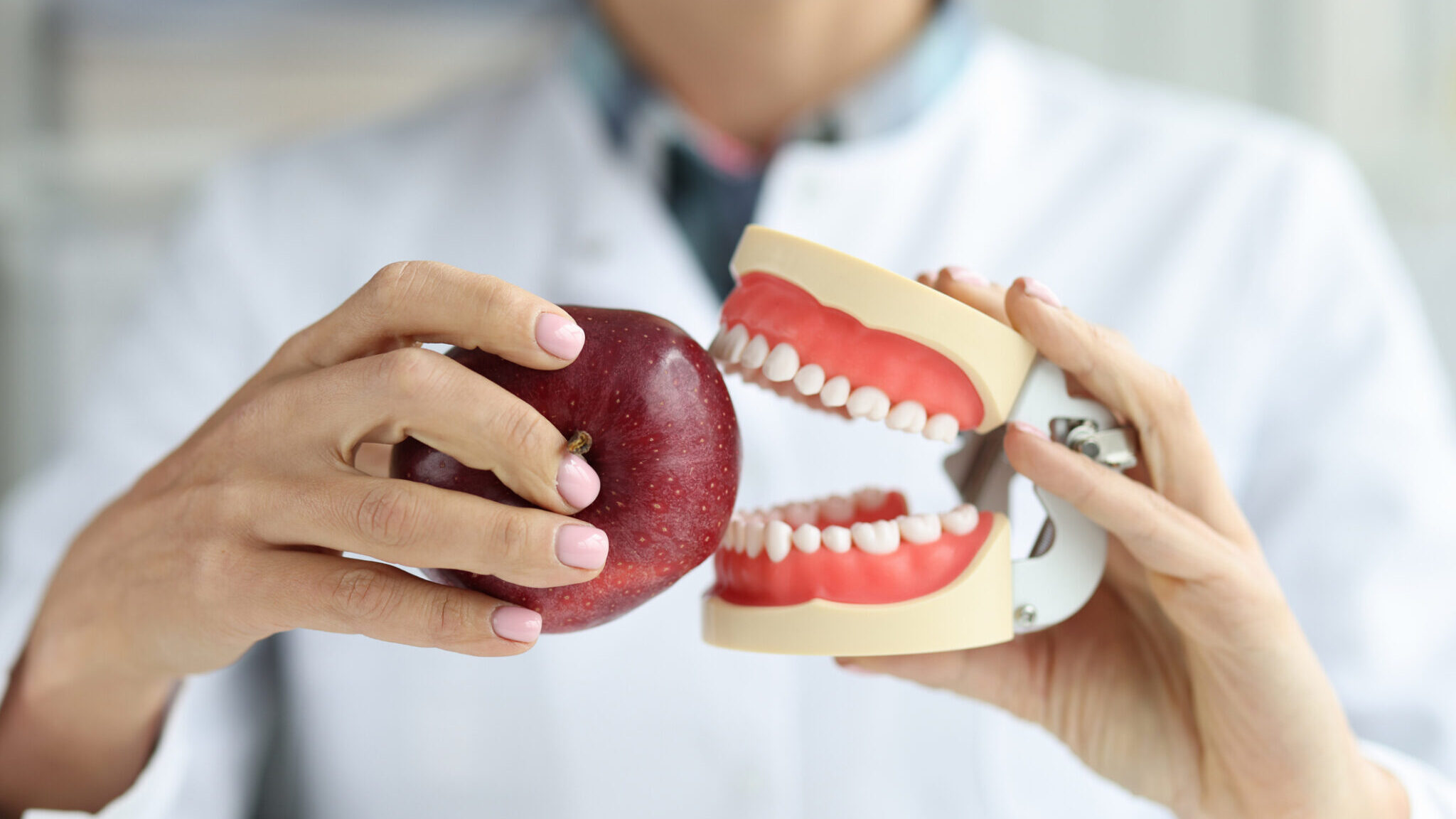
Maintaining good posture is a fundamental aspect of self-care for individuals dealing with Temporomandibular Joint (TMJ) disorders, as well as for healthcare professionals and the general population to avoid TMJ-related concerns.
Poor posture can aggravate TMJ pain by putting additional strain on the neck, shoulders, and jaw. We will delve deeper into the importance of posture and provide practical strategies that one can implement in their daily lives.
The Link between Posture and TMJ Health:
Understanding the connection between posture and TMJ health is pivotal. Poor posture can lead to several issues that may worsen TMJ symptoms, including the following:
- Muscle tension: Slouching or craning the neck forward increases the strain on the neck and shoulder muscles, which are closely interconnected with the TMJ. The muscles surrounding the TMJ can become overworked and strained, contributing to TMJ pain and dysfunction.
- Jaw misalignment: An imbalanced posture can cause a misalignment of the jaw, leading to uneven pressure on the TMJ. When your head is not properly aligned with your spine, it can affect the alignment of the jaw joint, leading to instability and discomfort. This misalignment can intensify TMJ pain and contribute to clicking or popping sounds.
- Stress: Poor posture can increase overall stress on the body. Stress is a common trigger for TMJ problems. Tension and stress-related behaviors like teeth clenching and grinding often worsen when posture is compromised. Poor posture, particularly when combined with stress, can cause people to clench their jaw or grind their teeth unconsciously. This can lead to increased muscle tension and exacerbate TMJ issues.
- Stagnant blood flow: Blood can become stagnant in your lower extremities (i.e., feet and legs) as a result of poor circulation brought on by bad posture, such as sitting for extended periods of time. This reduces blood flow to the rest of your body and may result in nerve discomfort. Inadequate blood supply can affect the repair and healing processes, making TMJ symptoms worse.
Strategies for Maintaining Good Posture:
Proactive steps to improve your posture and alleviate related discomfort:
- Ergonomic office set-up: An ergonomic office setup is crucial for professionals, whether you’re in the healthcare field, administrative roles, or any other profession. Maintaining good posture and reducing the risk of developing or exacerbating Temporomandibular Joint (TMJ) issues is important. This includes using an adjustable chair, keyboard, and monitor to ensure that the body is correctly aligned. The top of the computer screen should be at or slightly below eye level to encourage an upright head and neck position.
- Frequent breaks: Frequent breaks are a vital component of TMJ self-care, and this practice is beneficial not only for TMJ patients but for everyone, including healthcare professionals. Whether you’re a doctor, nurse, office worker, or any other professional, incorporating short, regular breaks into your daily routine can make a significant difference in preventing or alleviating TMJ-related discomfort and promoting overall well-being. Simple exercises like neck rolls, shoulder shrugs, and gentle jaw movements can help relieve tension.
- Conscious sitting and standing: One must make a conscious effort to sit and stand up straight, aligning their head over their shoulders and their shoulders over their hips. You should avoid slumping, craning your neck forward, or rounding your shoulders.
- Lumbar Support: When sitting, you can use a lumbar support pillow to maintain the natural curve of your lower spine. When the lower back is adequately supported, it helps to reduce the strain on the neck and shoulders, as well as the entire musculoskeletal system.
- Mobile device ergonomics: When using digital devices, such as smartphones and tablets, bring the device up to eye level to prevent bending your necks downward. Additionally, using a tablet or smartphone holder can help maintain better neck posture.
- Regular physical activity: Engaging in activities that promote overall body strength and flexibility, such as yoga or pilates, can be highly beneficial. These exercises can improve posture and reduce tension throughout the body.
In the demanding and often high-pressure world of healthcare, it’s easy to overlook personal well-being in the pursuit of providing the best care for patients. However, it’s essential to remember that only by taking care of ourselves can we continue to offer the highest standard of care to those who depend on us.
By integrating these practices into our daily routines, we can also set a positive example for our patients and demonstrate the importance of proactive TMJ self-care. These efforts can make a substantial difference in managing TMJ symptoms and preventing their exacerbation, particularly in professions like ours that require extended working hours and intense focus.
About the Author:

Currently working as an In House Doctor in Hyderabad, India. Her passion for writing and an unwavering commitment to enhancing patient experiences defines her professional identity. When she is not working she’s usually found in a café, indulging in lattes. She can be reached at drpratyushakondath@gmail.com












